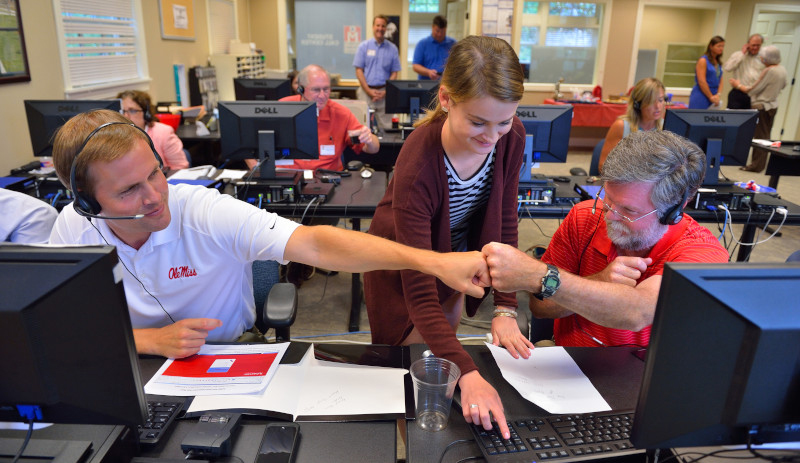
About the Bachelor of Business Administration in Banking and Finance
An Ole Miss degree in banking and finance is invaluable. Banks and regulatory agencies are looking for graduates with banking and finance-related experience. Our curriculum includes instruction in commercial and consumer lending, financial statement analysis, and auditing.
What Will You Become?
Whether you plan to run your own business or join a corporation, as a graduate you’ll be ready to work as a lender, credit analyst, regulatory and compliance officer, investment adviser, or even financial planner or analyst.
On this Page…
Program Information
Degree
B.B.A. in Banking and Finance
Emphases
Banking and Finance
Required Credit Hours
120 Hours
Program Type
Major
Program Location
Duration
4 Years
Build your career in one of these professions
- Commercial and Consumer Lending
- Financial Statement Analysis
- Regulatory and Compliance Issues
- Risk Management
- Financial Decision-Making
- Lending
- Global Banking
- Bank Performance
- Financial Mathematics
- Legal Guidelines
- Financial Analytics
- Financial Planning
4 Year Action Plan
- Connect on Campus: Participate in the Business School’s Welcome Week Fair: Open for Business. Get involved on campus by joining a club or organization of interest.
- Discover Your Strengths, Interests, and Values: Use the Career Center’s career exploration tools to evaluate your interests, values, and possible career paths.
- Explore Your Major and Career Options: Strategically choose your electives to spark career interests.
- Register on the Career Databases— Handshake and College Central Network
- Obtain part-time, summer, or volunteer jobs to gain experience and explore possible careers.
- Conduct informational interviews with people working in occupations of interest to ask questions about careers, while making valuable contacts
- Draft a resume with your current college education, experiences, and activities.
- Develop and start optimizing your LinkedIn profile.
- Conduct a mock interview.
- Engage in experiential learning activities such as micro-internships, Forage virtual simulations, job shadowing.
- Join the Finance Club and participate in the TVA Investment Challenge.
- Identify and craft one career-related goal.
- Engage in experiences related to your career interests and major, such as internships, summer jobs, part-time jobs, service learning, volunteerism, and study abroad.
- Obtain a leadership position with your student organization.
- Research companies, industries, or graduate schools of interests. Prepare for graduate school entrance exams or other industry certifications.
- Network and build professional relationships.
- Update your resume, cover letter, LinkedIn profile, and social media presence.
- Polish your personal branding image (resume, cover letter, business cards, online presence).
- Consult experts in your field through informational interviews. Master your field of study and remain knowledgeable of industry trends.
- Practice talking about your accomplishments, transferable skills, and qualifications.
- Attend our annual Banking and Finance Symposium.
- Research companies, industry leaders and jobs you might want. Good information makes good decisions.
- Book an appointment with the Business School Career Team to review your application materials.
Navigating Banking and Finance Career Paths
Banking and Finance careers include a variety of banking and money management services, such as saving, investing, and retirement plans. Careers in banking and financial services range from customer service banking and sales positions to financial advisers and analyst positions. They typically work in commercial banks, mortgage companies, savings and loan establishments, and credit unions. Government agencies and companies also require financial services professionals to manage their portfolios and statements.
For a more comprehensive look at this major, check out “What Can I Do With This Major?”
Next Steps
Explore Affordability
We have a variety of scholarships and financial aid options to help make college more affordable for you and your family.
Apply to the University of Mississippi
Are you ready to take the next step toward building your legacy?
